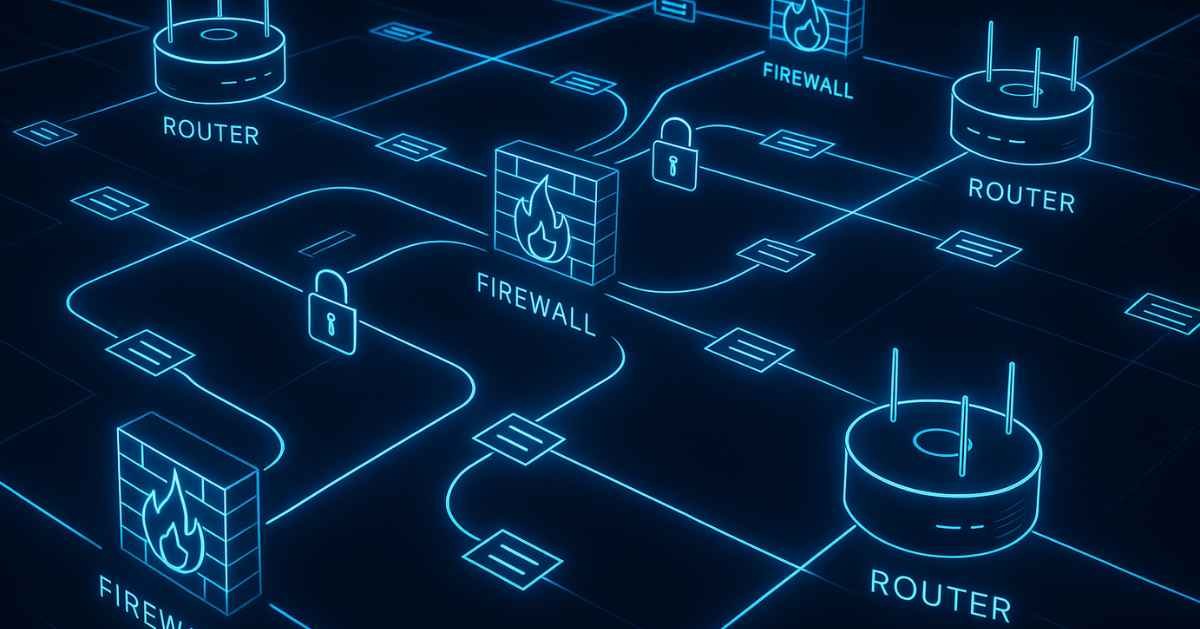In an age where cyber threats grow more complex every day, the demand for skilled cybersecurity professionals has never been higher. Whether you dream of becoming an ethical hacker, a network defender, or a cloud security analyst, mastering the right cybersecurity skills is the foundation of your success.
If you’re a cybersecurity student or planning to enter this exciting field, this guide will walk you through the top skills every cybersecurity student must learn to stay ahead in 2025 and beyond.
1. Master Networking Fundamentals
Understanding computer networks is the backbone of cybersecurity. Everything from phishing attacks to data breaches occurs through networked systems.
Why It’s Important
Cybersecurity experts must understand how data moves, how protocols work, and how to identify anomalies. When you master networking concepts, you can detect and prevent attacks more effectively.
What to Learn
- OSI & TCP/IP Models
- IP Addressing & Subnetting
- Firewalls, VPNs, and IDS/IPS
- Tools: Wireshark, Nmap, Netcat
2. Gain Proficiency in Operating Systems (Especially Linux)
Cybersecurity professionals work across different operating systems, but Linux remains the most crucial.
Why It’s Important
Linux is widely used in servers, security tools, and penetration testing environments. Understanding its command-line tools gives you a real advantage.
What to Learn
- Linux Command Line (CLI)
- File Permissions & Access Controls
- Scripting & Automation
- Service and Process Management
3. Understand Cyber Threats and Attack Vectors
To defend effectively, you must think like an attacker. Cybersecurity students need to study different types of cyber threats and attack methods.
What to Focus On
- Phishing, Malware, Ransomware, DDoS
- SQL Injection & XSS
- Cyber Kill Chain Model
- MITRE ATT&CK Framework
Learning these helps you predict attacks before they happen.
4. Learn Programming and Scripting
Programming skills help you analyze vulnerabilities, write secure code, and automate repetitive tasks.
Best Languages to Learn
- Python – Automation and penetration testing
- C/C++ – Reverse engineering and malware analysis
- JavaScript – Web app vulnerabilities
- Bash/Shell Scripting – System automation
Knowing how to read and write code is one of the top cybersecurity skills for students in 2025.
5. Build Risk Management and Incident Response Skills
Even with strong defenses, breaches can happen. Incident response ensures you know how to act quickly and minimize damage.
Learn About
- Cybersecurity Risk Management Frameworks (NIST, ISO 27001)
- Incident Response Lifecycle: Preparation → Detection → Recovery
- Forensics and Log Analysis
- SIEM Tools: Splunk, ELK Stack, QRadar
Being prepared for cyber incidents makes you an invaluable team member.
6. Develop Cloud Security Expertise
With businesses migrating to cloud platforms, cloud security is now one of the most in-demand skills in cybersecurity.
Key Areas
- Cloud Service Models (IaaS, PaaS, SaaS)
- Cloud Identity and Access Management (IAM)
- Security Configuration in AWS, Azure, and Google Cloud
- Cloud Compliance (ISO 27017, CSA, NIST)
Professionals who understand cloud security will continue to dominate the job market in the coming decade.
7. Practice Ethical Hacking and Penetration Testing
Ethical hackers simulate real-world attacks to discover and fix vulnerabilities before criminals exploit them.
What You Should Learn
- Penetration Testing Methodologies (OSSTMM, PTES)
- Tools: Kali Linux, Metasploit, Burp Suite, Hydra
- Vulnerability Scanning & Exploitation
- Bug Bounty Programs
Ethical hacking is not just thrilling — it’s one of the most lucrative cybersecurity career paths.
8. Study Cryptography and Data Protection
Cybersecurity isn’t just about defending networks; it’s about securing the data that travels through them.
Core Concepts
- Symmetric & Asymmetric Encryption
- Hashing, Digital Signatures, and Certificates
- SSL/TLS Protocols
- Public Key Infrastructure (PKI)
Cryptography skills ensure that even if data is intercepted, it remains unreadable and secure.
9. Improve Communication and Analytical Thinking
Cybersecurity isn’t only about technology — it’s also about teamwork, communication, and problem-solving.
Why It Matters
You’ll often need to explain complex technical issues to non-technical stakeholders or write detailed incident reports. Analytical thinking helps you make decisions under pressure.
Focus On
- Technical documentation
- Presentation and reporting skills
- Problem-solving under stress
Soft skills make you not just a good technician but a great cybersecurity professional.
10. Commit to Continuous Learning and Certifications
Cybersecurity evolves constantly. What’s cutting-edge today might be outdated tomorrow. That’s why lifelong learning is essential.
Recommended Certifications
- CompTIA Security+ – Beginner level
- CEH (Certified Ethical Hacker) – Intermediate
- CISSP – Advanced, leadership roles
- CCSP – Cloud Security specialization
- Cisco CyberOps Associate – Network defense
Staying certified and updated helps you build credibility and stay ahead in your cybersecurity career.
Final Thoughts
The cybersecurity world is fast-paced, dynamic, and full of opportunities for those with the right skill set. Whether your goal is to become an ethical hacker, cloud security expert, or security analyst, mastering these top cybersecurity skills will prepare you for any challenge.
As a cybersecurity student, your biggest asset is curiosity — the desire to keep learning, exploring, and improving. Combine that with the technical and analytical skills listed above, and you’ll be ready to protect the digital world with confidence.




